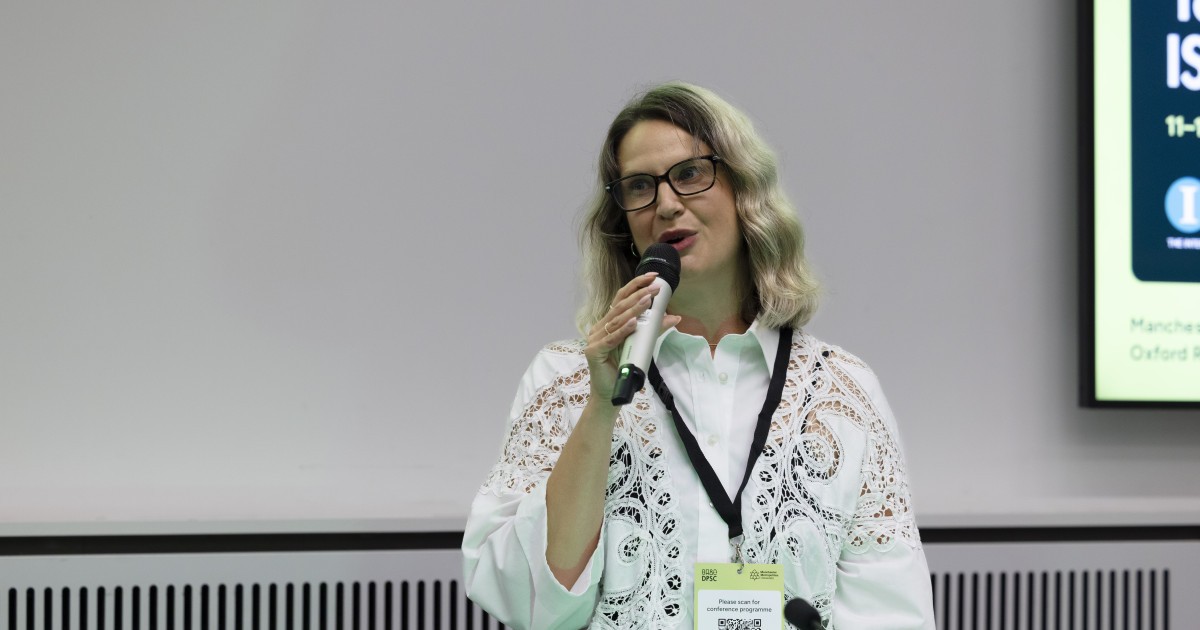Future of drug policy conference hosted at Manchester Met

Against new and developing trends in drug use, the largest international gathering of researchers, policymakers, and practitioners have met at Manchester Metropolitan University to work together to shape the future of drug policy.
The 18th annual International Society for the Study of Drug Policy (ISSDP) conference was held at the University from June 11 – 13, hosted by the Manchester Met’s Drugs, Policy, and Social Change (DPSC) research group.
The conference aimed to provide an inclusive platform where diverse voices from affected communities, practitioners, and policymakers met to explore and address the complexities of drug policy processes and formation.
The three-day conference brought together more than 220 researchers and policymakers from over 30 countries.
Manchester Met research presented included the first regional study on THC vape prevalence, conducted as part of Greater Manchester Testing and Research on Emergent and New Drugs (GMTRENDS), the UK’s only annual mixed-method regional drug trend survey. The findings, presented by Dr Mike Salinas, showed almost half of young people in the region reported using THC vapes in 2023, with forensic analysis identifying the vapes varied significantly in content.
The presentation highlighted the need for awareness and education on THC vape content, recommending that public health campaigns aimed at young people are implemented using social media.
Dr Oliver Sutcliffe presented the work of the MANchester DRug Analysis and Knowledge Exchange (MANDRAKE) partnership between UK law enforcement and academia, which has been expanded from its origins in Manchester to deliver rapid, cost-effective chemical analysis to monitor drug trends and potency shifts within a variety of substance groups and to deliver harm-reduction and safeguard vulnerable communities across the wider North of England.
Professor Rob Ralphs described the case for a harm reduction approach to ketamine use, which has been steadily increasing in the UK since the mid-2000s, leading to calls to reclassify it from a Class B to a Class A drug. Prof Ralphs outlined his research indicates a harm reduction approach should instead be recommended, including increasing awareness among both young people and medical professionals about the risks of ketamine use and the early signs of bladder damage, and the implementation of a national ketamine treatment protocol.
Dr Rebecca Askew, Reader in Criminology at Manchester Met, who hosted the conference, said: “The conference brought together people from more than 30 countries from around the world and it was an important opportunity to gain insights into the work that is taking place across the globe in this important area, which impacts the lives of so many people.
“It also highlighted the significant contributions the Drugs, Policy, and Social Change research group is making to policy, and it was great to hear from colleagues from other groups with shared goals. We look forward to continuing to make an impact on drug policy as we continue to collaborate and share research and experience.”
The day before the ISSDP conference a half-day workshop was run, titled ‘Drug-related deaths: national and international challenges and perspectives’. Hosted jointly by Manchester Metropolitan’s Drugs, Policy and Social Change (DPSC) research group and the European Network on the Social and Structural Determinants of Drug-related deaths, it was designed to provide regional and national stakeholders (frontline professionals, service managers, commissioners, and policymakers), with the opportunity to hear from world-leading experts in the drug policy field.
It was attended by more than 90 stakeholders, providing them with the chance to learn about the latest international responses to drug-related deaths and to discuss solutions to reduce record numbers of drug-related deaths in the UK.
For more information on the Drugs, Policy, and Social Change (DPSC) research group, visit Home – Drugs, Policy and Social Change (DPSC).




